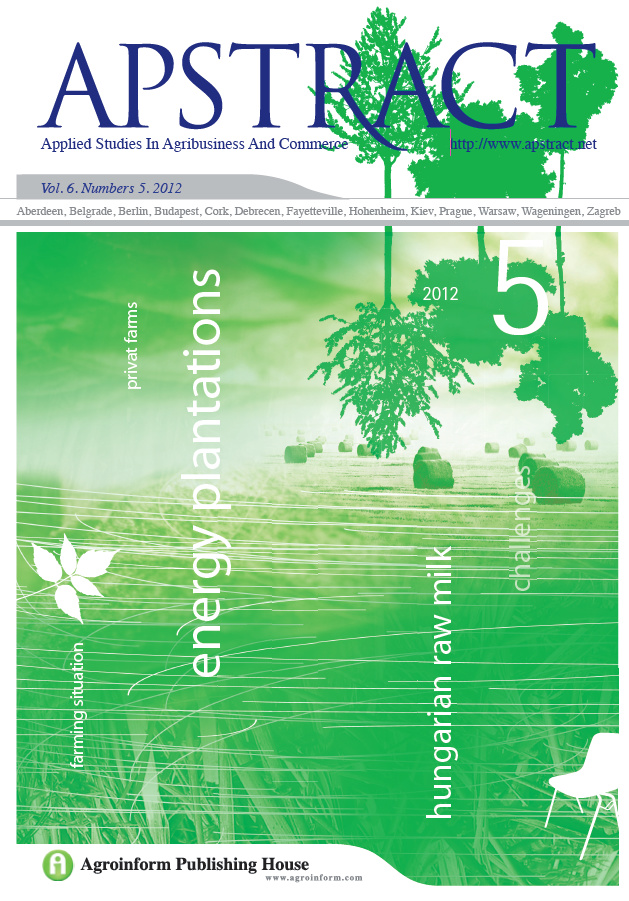The economic and social role of private farms in Hungarian agriculture
Authors
View
Keywords
How To Cite
Abstract
The situation and importance of private farms in Hungary have significantly changed and are still changing due to the political and economic regime change of 1989-90 and subsequent events. The aim of this study is to provide – unlike the practice of the last two decades – an impartial review of the social and economic role of Hungarian private farms. To demonstrate the changes occurring in private farms, we rely on the data of the Hungarian Central Statistical Office (HCSO-KSH)such as the General Structure Surveys, the Farm Structure Surveys, and tables from the online stADAT database.
From the point of view of methodology, time series analyses (2000–2010) were performed in the framework of this secondary research. Our hypothesis that private farms in Hungary deserve much more attention than previously, from the perspective of the output of Hungarian agriculture, food consumption and, last but not least, employment (the environmental factor was not examined this time) has been clearly confirmed. The role and significance of this group have also been exceedingly important since EU accession, particularly in the fields of horticulture and animal husbandry, and the strengthening of these positions is indisputably a national economic interest.


 https://doi.org/10.19041/APSTRACT/2012/5/5
https://doi.org/10.19041/APSTRACT/2012/5/5




